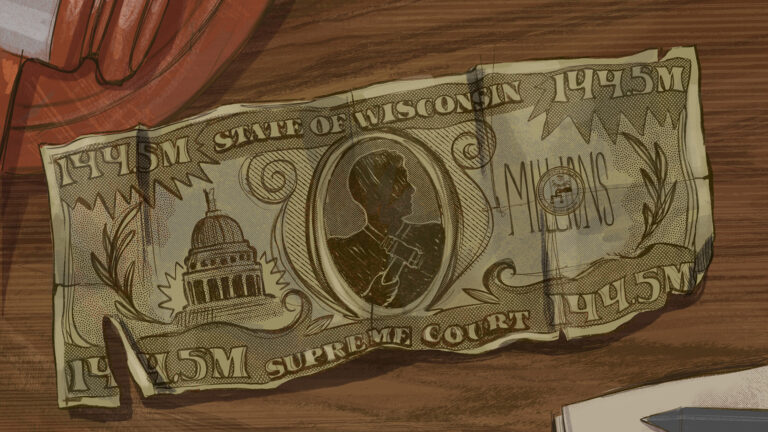Frederica Freyberg:
The State Assembly Chambers in Madison was the site for Tuesday’s State of the Tribes Address. The annual address is an important nation to nation connection. One focus Tuesday was the spring spear fishing season. The address was given by Lac Courte Oreilles chairman Gordon Thayer.
Gordon Thayer:
I read some inflammatory press clippings recently about our spring spear fishing declaration. It brought me back actually to the ’80s, when tensions ran high from slanted comments in the press. I was chairman of Lac Courte Oreilles, as I said, and back then it brought me back. It's almost like flashbacks. I had numerous calls threatening me, making vulgar, derogatory remarks. The racial words that came out, I won’t even repeat them here, to show the hatred over that issue. The racist overtones.
The Wisconsin DNR leadership must recognize it’s not the ’80s. Spear fishing and treaty-protected rights have ensured a safe harvest to all to enjoy. I say all to enjoy. It’s a sad commentary when political propaganda appears in the press. Who wants to come to visit Wisconsin when slanted press releases are designed to raise tensions and provoke concern among sportsmen about our very own resources? It’s time for this propaganda to stop, and true leadership through communication must begin. [cheers and applause]
Gordon Thayer:
To be clear, the Tribal Fish Declaration has been scientifically proven that tribal harvest, even at 100% tribal quota, impacts less than 13% of the total fish population in each lake in northern Wisconsin. Think about that. Yet the DNR press releases would have you think a bag limit is the last step from fish depletion. That simply is not true.
Frederica Freyberg:
We asked DNR Secretary Cathy Stepp to appear on tonight’s program. She declined. Here’s a statement, however, from the secretary. She says, I have stated it in the past and I want to be clear again that the Chippewa Tribes are acting lawfully within their treaty rights and the increased declarations do not endanger the fishery. However, the declaration of 197 lakes at a level that will result in a one-walleye daily bag limit was a drastic increase, given that over the past 15 years we have seen a maximum of ten lakes declared at one time for one-walleye bag limit. As we have stated publicly, the reduced bag limit has the potential to drive down angler participation throughout the summer, decreasing tourism to the lakes of northern Wisconsin and impacting local economies. These are economies that are already suffering the impacts of reduced winter recreation and summer visits.
Search Episodes
News Stories from PBS Wisconsin

Donate to sign up. Activate and sign in to Passport. It's that easy to help PBS Wisconsin serve your community through media that educates, inspires, and entertains.
Make your membership gift today
Only for new users: Activate Passport using your code or email address
Already a member?
Look up my account
Need some help? Go to FAQ or visit PBS Passport Help
Need help accessing PBS Wisconsin anywhere?

Online Access | Platform & Device Access | Cable or Satellite Access | Over-The-Air Access
Visit Access Guide
Need help accessing PBS Wisconsin anywhere?

Visit Our
Live TV Access Guide
Online AccessPlatform & Device Access
Cable or Satellite Access
Over-The-Air Access
Visit Access Guide
 Passport
Passport


















Follow Us